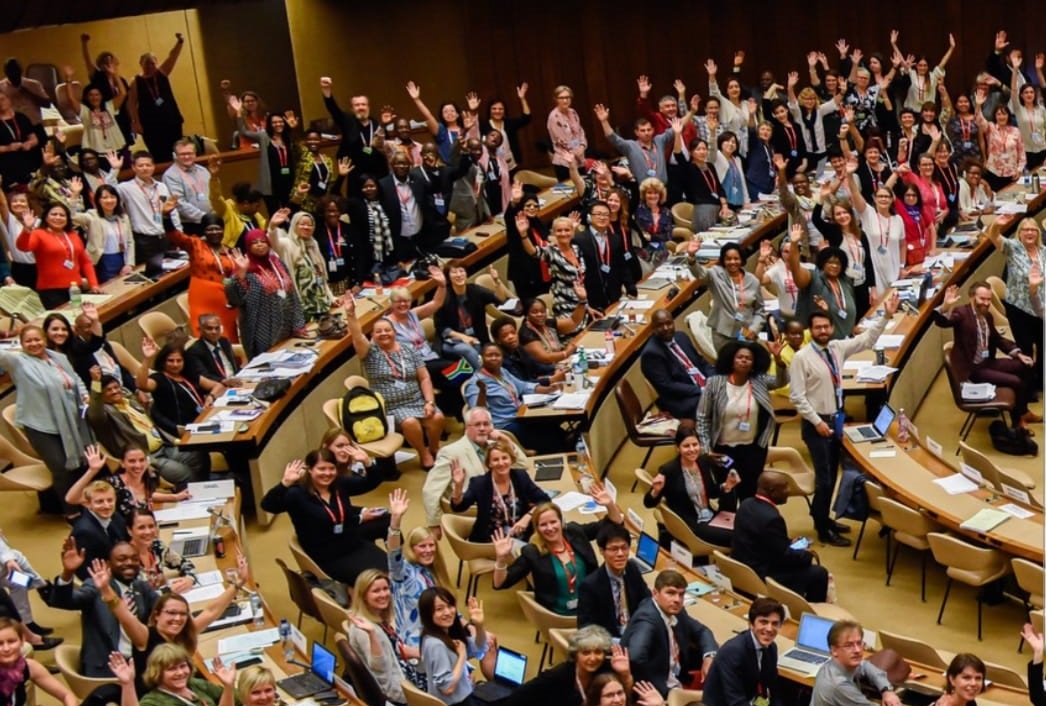ILO Convention and Recommendation on violence and harassment at work becomes a reality
Published:
On 21st June 2019, the 108th Centenary International Labour Conference overwhelmingly voted in favour of the revolutionary Convention and Recommendation on Violence and Harassment in the World of Work.
This ground-breaking instrument sets out to protect all workers in both public and private sectors including jobseekers, part-time workers, trainees, interns, apprentices and volunteers.
The key areas to prevent and tackle harassment and violence in the world of work include the adoption by all Members of the ILO, in cooperation with social partners, of an inclusive, integrated and gender responsive approach to the prevention and elimination of violence and harassment in the world of work, for instance through the development of tools, guidance, education and training and raising awareness measures. The Convention also highlights the need to respect, promote and realize the fundamental principles and rights at work, namely freedom of association and the effective recognition of the right to collective bargaining.
ETUCE warmly welcomes this move, noting that violence, and particularly gender-based violence is a growing problem within the education sector. Recent research carried out by ETUCE has shown that over 50% of European education trade unions consider gender-based violence to be a significant issue and are particularly concerned by the increased use of social media for the purposes of harassment and cyber bullying. Across Europe, teachers receive threats of violence from pupils, parents and other staff members but are reluctant to report such incidences as they fear that their claims will not be taken seriously or will result in inaction.
Susan Flocken, ETUCE European Director, welcomed the adoption of the Convention: ‘With the adoption of this Convention, the International Labour Organisation listens, vindicates, and recognises the plight of workers across Europe and the world who suffer harassment and violence in their work and have few instances to turn to. It is now of paramount importance that members of the ILO enforce the preventive and combative actions laid out in the Convention, in all sectors, in close cooperation with social partners, and with special attention to vulnerable workers’.
ETUCE actively and continuously supports its Member organisations in the prevention and combatting of violence and harassment in the education sector, including through the carrying out of the ETUCE/EFEE joint Third-Party Violence project (2011-2012), the publication of the Joint Implementation Guide of the Multi-Sectoral Guidelines to Tackle Third-Party Violence and Harassment Related to Work ‘How to Prevent and Mitigate Third-Party Violence and Harassment in Schools’ (2012), and the joint ETUCE/EFEE development of an Online Interactive Risk Assessment for the Education Sector in the framework of the OiRA project (2018-2019).
Moreover, in the framework of ETUCE’s current project, Empowering education trade unions to address gender equality in the teaching profession through social dialogue, member organisations have had the opportunity to gather at training seminars and to show the crucial role that they have played in combating gender-based violence in their respective education systems. Effective examples include organising awareness-raising campaigns, conducting surveys to examine the extent of the problem in schools, removing violent content from textbooks and ensuring that the criminalisation of the harassment of teachers is enshrined in national legislation.
These examples and more can be found in ETUCE’s online database of best practices, which is due to be launched shortly on ETUCE’s website.